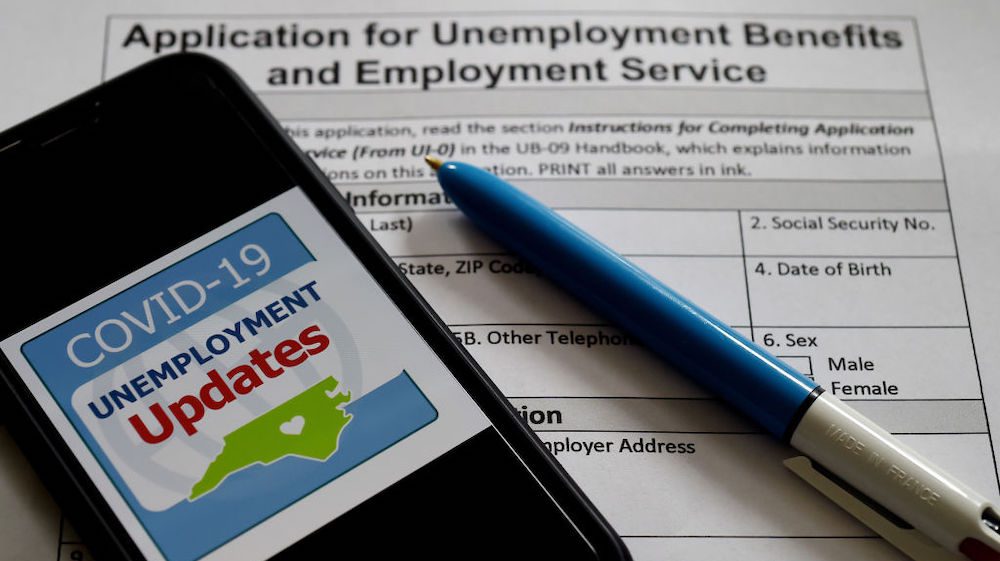
Olivier Douliery/AFP via Getty Images
The country is experiencing its worst bout of unemployment since the Great Depression.
The coronavirus pandemic has roiled the financial markets, disrupted the global supply chain, and resulted in an unemployment rate of 14.7% in April, according to the U.S. Bureau of Labor Statistics. As nonessential businesses have been forced to temporarily close to stem the spread of COVID-19, about 23.1 million Americans have found themselves furloughed or out of a job.
As dire as those numbers sound, the unemployment rate is likely much higher, in the range of 20% or more. That’s because the BLS looked at unemployment only for the week ending April 18. At least 7 million more Americans have filed for unemployment insurance since then, according to seasonally adjusted BLS data.
Since the housing market is closely tied to the economy, this painful period of joblessness will likely affect real estate.
“The numbers are terrible,” says realtor.com®’s chief economist, Danielle Hale. “It hasn’t started getting better yet, so the May numbers are going to look worse.”
Many potential buyers have been forced out of the market because they’ve lost jobs or income or have been furloughed. Many more would-be homeowners are worried about the security of their own jobs—and are therefore holding off on what could be the biggest purchase of their lives. And even those still intending to buy are finding it’s become harder to get a mortgage since the crisis began.
Some are dipping in to down payment savings to make ends meet, which could set them back even when the economy gets back on track.
“We’ve seen home sales decline because of the challenges,” says Hale.
That’s also because sellers are pulling the “For Sale” signs off their front yards and delaying listing their properties until the worst is over. With fewer buyers, they may be worried about getting lowballed. They may also be uncomfortable about having extra foot traffic through their homes during a pandemic. And many sellers are buyers, too, so they may want to wait until more homes hit the market.
“Any seller who has flexibility is probably choosing to wait until things get back a little closer to normal,” says Hale. “While there certainly are some home buyers in the market, there aren’t as many as there would be in a normal spring market.”
However, it’s not all bad news. As states and cities loosen restrictions, more buyers in those areas are pulling the trigger on purchasing homes again.
“The housing market is in [uncharted waters] right now, but … purchase mortgage applications have increased for three straight weeks,” Joel Kan, an economist with the Mortgage Bankers Association, said in a statement. “Prospective buyers [are] gradually returning in the various parts of the country that are reopening.”
The government’s stimulus is also likely to offset at least some of the pain. In addition, many workers are (hopefully) only furloughed. That leads some economists to believe the worst of the pain could be concentrated in the short term.
“If you want to look on the bright side, many people expect this is temporary and they’ll go back to their same jobs,” says Hale.
Even before the coronavirus crisis, many prospective home buyers were searching despite expecting a recession around the bend.
“There already was enough memory of the last recession that most homeowners go into the market thinking about whether they have enough savings to tide them over in the event that they lose a job or lose income,” Hale says.
The post What Will 15 Percent Unemployment Mean for the Housing Market? appeared first on Real Estate News & Insights | realtor.com®.
source https://www.realtor.com/news/real-estate-news/unemployment-15-percent-housing-market/
No comments:
Post a Comment